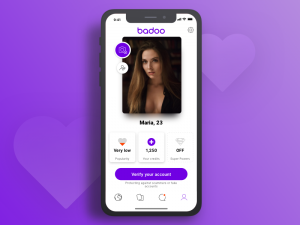 All online social network sites claim to be useful because they allow you to stay in contact with friends you wouldn’t otherwise hear from. Having a profile online allows you to post photos, videos and write thoughts or experiences available for anybody to read or see. They can all know where you are, what you are up to and so on. It’s cool and time saving, isn’t it?
All online social network sites claim to be useful because they allow you to stay in contact with friends you wouldn’t otherwise hear from. Having a profile online allows you to post photos, videos and write thoughts or experiences available for anybody to read or see. They can all know where you are, what you are up to and so on. It’s cool and time saving, isn’t it?
Although it is true that Facebook is mostly used to maintain contacts with people you know, the ‘temptation’ of enlarging your social network is always there. It’s surely not like LinkedIn where you just invite work colleague and you really want to maintain your profile linked just to specific people. In Facebook most users leave their profile open for others to see and it can happen that complete strangers ask you to be their ‘friend’. Sometimes you may think, ‘why not’, so you accept the invitation, simply basing your willingness on the other person’s picture.
Even though people say they use social networks just to maintain contacts with family and mates, the possibility of knowing ‘new friends’, or of being ‘on the market’, really stands behind the popularity of these social websites. If this weren’t true, if the possibility ‘to flirt’ were not an option, people would just have a personal blog, a mailing list or a private forum to stay in contact with whoever they wanted.
This trend is even clearer with Badoo, a ‘new’ service which is becoming extremely popular, and taking ground on Facebook. It is actually a free dating web site, under the appearance of a social network. Of course the service is meant to create your community of friends, share photos and videos. With this site you rate other people’s pictures, which can actually be funny, and post a brief profile. Within minutes you receive dozens of messages of people asking to be your friend and so on. Not that they will write more than ‘Hi, how are you’ though. Users can even pay to have their photo in the site’s home page, so they can be in contact with the entire world. The human omnipresence delirium has its chances to be fulfilled.
What I’ve found amazing is to ascertain the contrast between the online and ‘offline’ social approach. While on these networks people just try to speak with each other, even if they don’t have anything to say, offline we are not even able to interact with people we have around us if we don’t know them; even if we would have actually something to tell them as we are sharing something at the same time. Whether you are doing a course, visiting a museum or generally speaking, sharing a space, it seems like if people are not physically there, don’t interact, unless they know each other. Online, it’s completely the opposite. Am I the only one who finds this worrying? What’s more, although I’m no statesman, I can count up to ten, and based on my life experience, I can see around me that the vast majority of people, something like 99%, are engaged or in some type of relationship with someone. Online though, you discover they are all free for ‘social relationships’. Or there are two parallel worlds we are living in, thanks to quantum physics, or if we are talking about the same people, there is something I don’t get. Of course people don’t ‘cheat’, they are just expanding their network of friends, because they are socially open and they enjoy meeting new human beings.
If social networks are the way personal relationships are leading to, I will be eternally single and friends free, because I just find it a waste of time, an impoverishment of social skills, and a way to fill time with nothing more than vacuity. The same feeling you might have experienced after spending hours on these sites.
I might have as well titled this article: ‘Online social networks, or how you can spend your Sunday afternoon, without having actually done anything.’






Be First to Comment